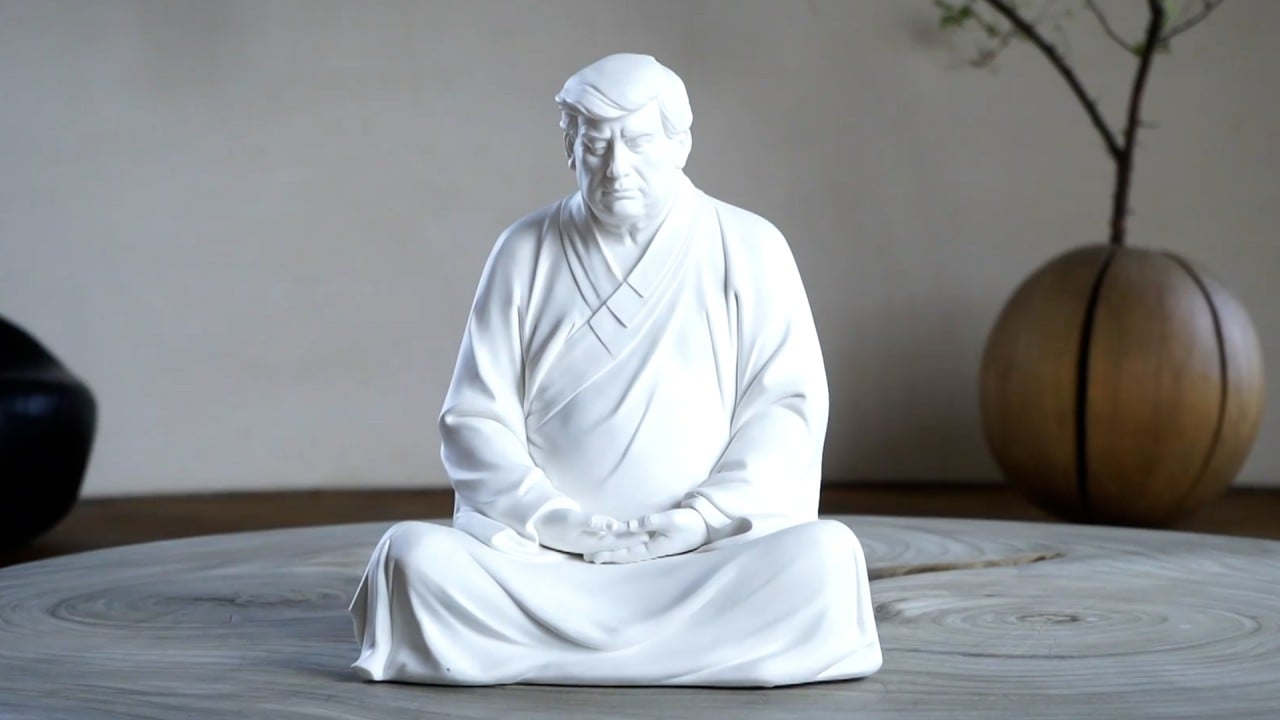
Younger Chinese more likely to hold unfavourable view of US, says study which concludes Donald Trump is much more to blame than propaganda
- Researchers say that those born after 1990 are more likely to express negative views compared with previous generations
- The study concluded that sentiments had taken a strong downward turn following Trump’s election in 2016
Chinese youths born after 1990 hold more negative views of the United States than older generations, a recent study has concluded.
The research, published in The Chinese Journal of International Politics, surveyed more than 2,000 Chinese men and women from three age groups across China over two periods – with the first one completed between October 29 and November 3, 2020 and the second one between January 25 and February 2 the following year.
The new analysis showed that the post-90s generation held more negative views of the US than those who are now in their 40s and 50s.
It said: “Those born in the 1990s and later (the ‘post-90ers’) were about 9 per cent less likely to say that the USA cares about China’s interests when making foreign policies and 5 per cent less likely to say that the USA has a positive influence on the Chinese economy.”
It also said that compared with the oldest group they were 16 per cent less likely to have confidence in the White House.
Education also plays a role. College-educated respondents, who in general had more “realistic understandings of China’s economy”, were 8 per cent more likely than those without a degree to say that the US was playing a less important role in the world.
Trump-era hawk wants US to ‘prepare for limited war’ with China
However, college-educated respondents were more subdued about Chinese global leadership, reflecting a view among many domestic analysts that the country is not ready for such a role.
Respondents who do have personal contact with the States are more likely to have positive views, they were 7 per cent more likely to have confidence in the US president and to believe the US respects its citizens’ freedoms.
The paper argues it is likely that “Trump’s rhetoric and policies toward China in 2020 had a much bigger role than propaganda in the worsening Chinese perceptions of the US”.
It said: “Compared with domestic events, it is more challenging to censor or ‘guide’ public opinion about foreign affairs, where numerous alternative (both domestic and foreign) sources of information are available.”
The study also said positive views of the US had seen a significant decline from a baseline of “rather strong goodwill” since Trump’s election, adding: “Trump’s trade war and hostile rhetoric toward China, combined with Chinese observations of mass protests against systemic racism in the USA as well as the January 6, 2021 Capitol riot, have likely prompted the Chinese public to re-evaluate the state of the bilateral relationship, China’s status in the world vis-à-vis the USA, and the USA as a country.”
The research cited a Eurasia Group survey of Chinese opinions of the US conducted in October 2019 – which found the number with explicitly negative feelings had quadrupled from 17 per cent the previous year to around 68 per cent, but were almost a third less likely to express negative views of Australia and Britain.
As Trump campaigned for re-election, 75 per cent of Chinese respondents believed that their country’s relationship with the United States has worsened. Shortly after President Joe Biden took office, that figure had dropped to 64 per cent.
China balks at Biden’s insistence on maintaining Trump-era tariffs
However, the study said that the “Biden bump” may dissipate over time as he continues many of Trump’s policies towards Beijing.
On the other hand, recent surveys have also found that Americans are increasingly likely to hold negative views of China. Last month a Gallup poll found that just 20 per cent of Americans have a favourable view of China.
Last year Pew Research Centre also ound that the number of Americans with an unfavourable view of China stood at 76 per cent, a sentiment broadly shared in Australia, Canada and Britain.


